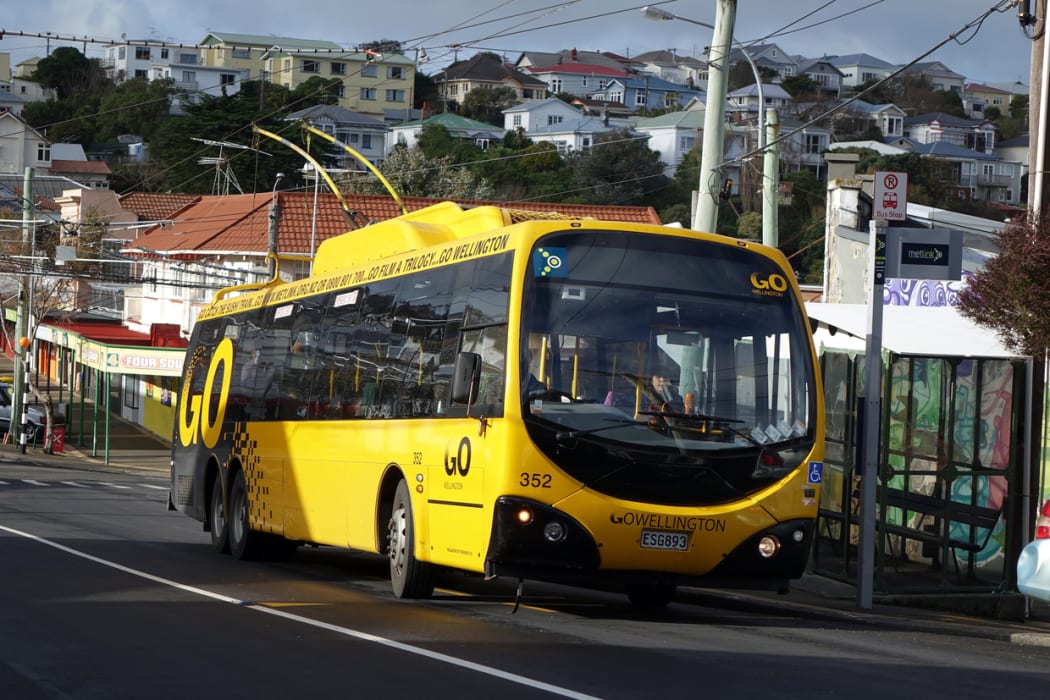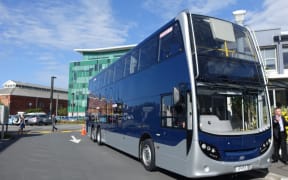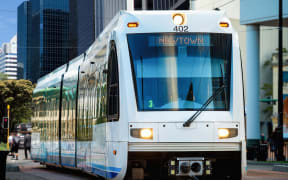The distinctive rattle and hum of Wellington's trolley buses is set to be silenced forever on Halloween when the regional council flicks the switch for the last time.

Wellington's trolley buses' time is nearly up Photo: RNZ / Diego Opatowski
However, bus drivers threatened with redundancy, public transport campaigners, health advocates and some Wellington City councillors are pinning their hopes on the new government to save the capital's venerable trolley network.
Tramways Union Wellington secretary Kevin O'Sullivan said the new Labour-led government should "step in to fix this mess".
"There's a definite commitment by the government to favour environmentally friendly public transport and it's an absolute scandal that regional council are proceeding to take down that asset and infrastructure," he said.
The network should be retained - at least in the short-term, until the much anticipated electric bus-fleet was on the road, he said.
"In fact, I think the government should force the regional council to do just that."
The trolley buses have already had a short stay of execution.
They were supposed to be phased out four months ago and converted into hybrid diesel-electric buses, but a working prototype has yet to hit the road.
The council has signed a contract with the Masterton-based company Tranzit - which will take over some routes next year - to introduce ten double-decker electric buses next July, followed by another 10 in 2020 and a further 12 in July 2021.
However, Congestion Free Wellington - an umbrella group of transport and health advocacy groups - said 32 electric buses out of a total fleet of 400 was "unambitious".
A spokesman for the group, Patrick Morgan, said there was no clear reason why the wires had to come down now when the new contracts were not due to come in until next year.
"Wellington has committed to being a low carbon capital, so for the regional council to take out the trolley bus wires - and they're actually being replaced with 20-year-old dirty diesel buses, cast-offs from Auckland - seems a really backwards step."
Mr Morgan said the cost to upgrade the trolley network - cited as a major reason by the regional council for retiring it - "could be as little as $11 or $12 million".
The city council owns the overhead wires network through the Wellington Cable Car Company.
Wellington councillor Chris Calvi-Freeman, who chairs the transport committee, said he and his colleague councillor Sarah Free had explored every possible avenue over the last year to retain the trolley buses.
Their value was "self-evident" and they should have been retained at least until other technology was proven to be effective, he said.
"Nothing is ever over until the fat lady sings, as they say.
"Clearly, the city council would be very interested if the government wanted to step into this at a very early stage in its new life, but I would be rather surprised if it did happen."
The regional council, which made the controversial decision to scrap the trolley bus fleet in 2014, has its foot firmly on the accelerator.
Deputy chair Barbara Donaldson heads the sustainable transport committee.
She said it was "too late" as contracts had already been signed, and overhead wires were coming down.
"We want to put our money into the future, not the past," she said.
"We're bringing in all new routes next year and the trolley buses don't necessarily have the flexibility we need."
She said if central government were to offer the regional council more money for public transport, they would use it to speed up moves toward a fully electric fleet.
Newly sworn in Transport Minister Phil Twyford said he had not yet been briefed on the matter.
Associate Minister and Green MP Julie Anne Genter said she was unable to comment until the delegations had been determined with the Minister of Transport.





